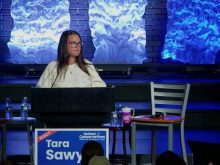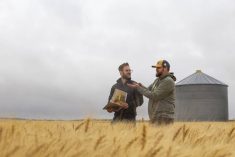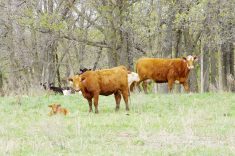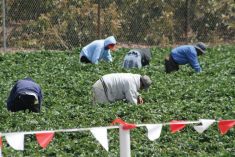He’s experienced. He’s motivated. And he’s the first to admit he doesn’t know a lick about farming.
His name is Mike Flynn and he’s the first executive director of the new Alberta Grains.
A non-aggie might seem like an odd choice for commission leadership, but he sports a unique CV: a professional executive director good at learning about complex industries on the fly. And Flynn is itching to bring those tools to an organization he already considers a well-oiled machine.
Read Also
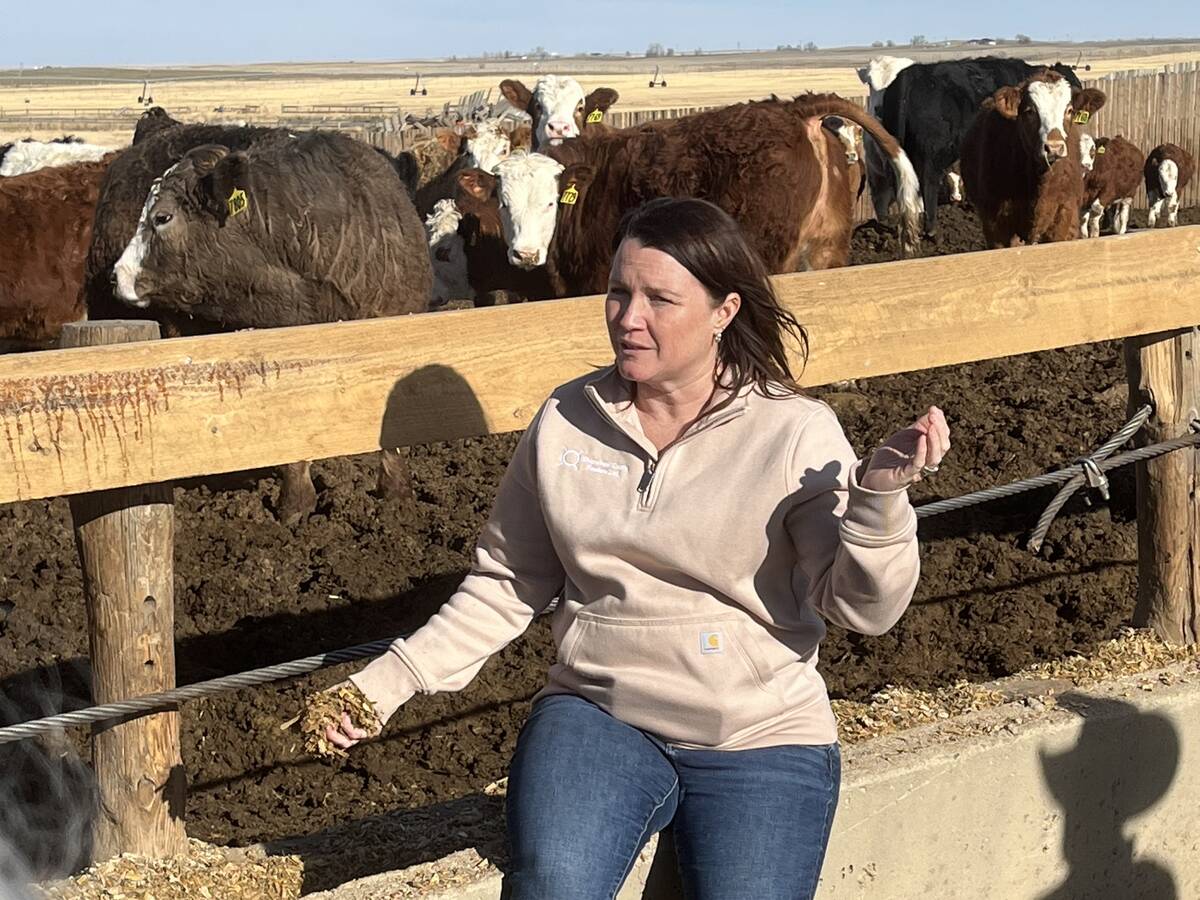
Roots of Resilience: The 50-year evolution of Shipwheel Cattle Feeders
Alberta’s Shipwheel Cattle Feeders is one of Canada’s pioneers in holistic regenerative agricultural practices.
“I feel like I found a car under a cover in the barn and it turned out it’s a Mustang and it’s raring to go,” said Flynn, who was born, raised and continues to live in Calgary.
Being a farmer was one of Alberta Grains’ most basic requirements for the job. However, that did not dissuade Flynn.
“I knew I had the basic fundamentals down from running an association that’s membership-based and works through a board of directors. That’s really where the depth of my experience lies and that is exactly what they were asking for,” he said.
“So I was able to make the case that I could overcome the learning and experience shortfall as quickly as I can. I’ve had to face very steep learning curves in several of my other executive directorships, so that’s not daunting to me by any means.”
Flynn has served as executive director of a number of mostly volunteer-driven commissions including the Calgary Police Commission (a civilian oversight body), the Urban Development Institute (an association that represents residential land developers) and a stint with the Canadian Association of Petroleum Land Administration (an organization representing professionals in the energy industry).
His most recent executive directorship was with FireSmart Alberta, a provincial initiative dedicated to teaching residents how to mitigate the risks and impacts of fires that affect communities and infrastructure.
Although he has an MBA, none of these positions matched his Bachelor of Arts in history and geography. In fact, Flynn had no prior experience in any of these industries.
“I didn’t know anything about (the oil and gas) industry, but I was able to quickly become acclimatized and understand the issues and effectively communicate with the membership,” said Flynn.
“I’m kind of accustomed to drilling down into what’s important in these associations and then trying to find the best way to facilitate getting it done.”
That requires working with a volunteer board, and Flynn considers himself uniquely qualified to do that. He also values feedback that comes through administrative staff, he said.
“You need to understand how to work well with volunteers because these are people who are very busy. I think a good executive director has administrative support to make sure they’re getting feedback from the members as to the priorities of the group, and then figuring out how to use the resources you have to get the best outcome.
“That doesn’t change regardless of what sector of the economy you’re in or what your association goals are.”
Flynn had not yet received his initial briefing from Alberta Grains before we talked to him Nov. 1. He admitted his farming knowledge is limited but he is learning.
“I know there’s no shortage of issues. I know that the weather is probably being paid the most attention to. I keep hearing that it seems like (producers) are getting all four seasons wrapped up into short bursts of time and it’s making it very hard to plan forward,” he said.
“I don’t know that we’ll ever figure out the weather thing but that’s definitely something that the commission needs to think about in terms of being able to help with the research and agronomy extension programs to try to find some workarounds.”
He also has the challenge of working with a new and potentially inexperienced Alberta Grains board starting in the new year.
“I know that among the many things (we need to do) is get sort of a priority briefing. We want to have a session to facilitate strategic planning to map out the next one to three years,” he said.
“I know there’s some issues at the federal level with the seaways that are causing some market friction and costs to rise. Hopefully that will get solved. I haven’t yet been briefed on how we interact at the federal level, but I’m sure that’s a part of the board’s discussion.”
An Oct. 23 news release signaled confidence in Flynn’s capabilities.
“Michael is the perfect person to lead and represent Alberta Grains as the commission’s first executive director,” wrote Tara Sawyer, interim chair for Alberta Grains.
“His track record of leading multiple, diverse organizations that contribute to Albertans in a positive way, along with his experience collaborating with partners and stakeholders of all levels, will allow him to seamlessly transition into the role to provide strategic and operational leadership to the organization.”
Like many rural Albertans, Flynn does have a family history of farming in his blood.
“My grandma on my mother’s side of the family comes from a line of farmers in Saskatchewan. Nothing in Alberta, unfortunately, but there’s a distinct connection to Saskatchewan. And I know my parents are still very close with friends and relatives in Saskatchewan,” he said.
“My godfather, who I’m quite close to, inherited some land in Sceptre, Saskatchewan, and he’s always been bugging me to come out to his farm. So I’m going to have to do that at some point.”





